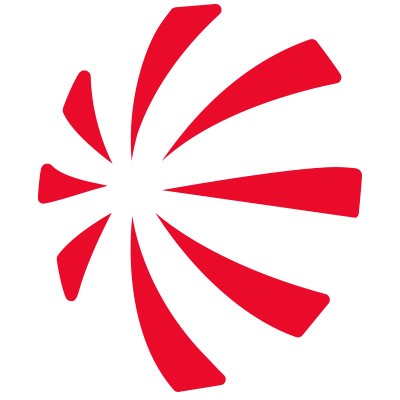Airbus Faces Turbulence: A New Era for Space Systems
July 30, 2024, 3:56 pm
Airbus is at a crossroads. The aerospace giant is reeling from significant financial setbacks in its Space Systems division. With recent charges totaling 1.5 billion euros, the company is scrambling to regain its footing. The winds of change are blowing, and Airbus is preparing to navigate through turbulent skies.
The Space Systems sector is a battleground. Traditional players like Airbus and Thales are feeling the heat from new competitors. The rise of small satellites in low Earth orbit is reshaping the landscape. Companies like Elon Musk's Starlink are changing the game. They offer lower costs and faster deployment. The old guard must adapt or risk being left behind.
Airbus is not waiting for the dust to settle. It is crafting a turnaround plan for its Space Systems business. This move comes amid ongoing consolidation talks with Italy's Leonardo and France's Thales. The goal? To create a more robust entity capable of competing in a rapidly evolving market.
The urgency is palpable. Airbus plans to announce a restructuring of its Space Systems activities by September. This is not just a minor adjustment; it’s a complete overhaul. The company is also implementing a cash containment plan across its Defense and Space unit. Managers have labeled the cost situation as "critical." This is a wake-up call.
The financial strain is evident. In June, Airbus revealed a 900-million-euro charge for its Space Systems activities. This followed a 600-million-euro hit the previous year. These losses stem from an audit of future revenues from high-tech projects like OneSat and EGNOS. The company is grappling with the reality of its situation. The stakes are high.
Airbus is one of Europe’s largest satellite manufacturers. It stands shoulder to shoulder with Thales Alenia Space. Together, they dominate the market. However, the traditional model of building one-off satellites for geostationary orbit is becoming obsolete. The industry is shifting. New players are emerging, and they are agile. They can produce satellites at a fraction of the cost.
The pressure to consolidate is mounting. A senior executive from Leonardo recently emphasized the need for the European satellite sector to unite. The competition is fierce, and the landscape is changing rapidly. Consolidation may be the key to survival. The old ways of doing business are no longer sufficient.
Airbus is also conducting a separate strategy review for its Space Systems division. This review is expected to conclude in the fourth quarter. The company is looking for ways to create scale in defense and space markets. The goal is to streamline operations and enhance competitiveness. The future depends on it.
The potential tie-up between Airbus, Thales, and Leonardo could reshape the industry. Collaboration may provide the scale needed to compete with nimble newcomers. However, the details remain murky. None of the companies involved have commented on the discussions. The silence speaks volumes.
The stakes are high for Airbus. The company must adapt to survive. The space industry is evolving, and the competition is relentless. The traditional giants must find new ways to innovate. They must embrace change or risk being eclipsed by more agile competitors.
As Airbus navigates this challenging terrain, the focus will be on efficiency and innovation. The company must streamline its operations and cut costs. It must also invest in new technologies to stay relevant. The path forward is fraught with challenges, but the potential rewards are immense.
The consolidation talks could lead to a stronger, more competitive entity. By pooling resources and expertise, Airbus, Thales, and Leonardo could create a formidable force in the space sector. This collaboration could enable them to better compete against the likes of SpaceX and other emerging players.
The road ahead is uncertain. Airbus is facing a critical juncture. The decisions made in the coming months will shape the future of its Space Systems division. The company must act decisively. It must embrace change and adapt to the new reality of the space industry.
In conclusion, Airbus is in the midst of a significant transformation. The challenges are daunting, but the potential for growth is immense. The company must navigate these turbulent waters with skill and foresight. The future of its Space Systems division hangs in the balance. The time for action is now. The skies may be cloudy, but there is a silver lining on the horizon. Airbus has the opportunity to emerge stronger and more resilient than ever before.
The Space Systems sector is a battleground. Traditional players like Airbus and Thales are feeling the heat from new competitors. The rise of small satellites in low Earth orbit is reshaping the landscape. Companies like Elon Musk's Starlink are changing the game. They offer lower costs and faster deployment. The old guard must adapt or risk being left behind.
Airbus is not waiting for the dust to settle. It is crafting a turnaround plan for its Space Systems business. This move comes amid ongoing consolidation talks with Italy's Leonardo and France's Thales. The goal? To create a more robust entity capable of competing in a rapidly evolving market.
The urgency is palpable. Airbus plans to announce a restructuring of its Space Systems activities by September. This is not just a minor adjustment; it’s a complete overhaul. The company is also implementing a cash containment plan across its Defense and Space unit. Managers have labeled the cost situation as "critical." This is a wake-up call.
The financial strain is evident. In June, Airbus revealed a 900-million-euro charge for its Space Systems activities. This followed a 600-million-euro hit the previous year. These losses stem from an audit of future revenues from high-tech projects like OneSat and EGNOS. The company is grappling with the reality of its situation. The stakes are high.
Airbus is one of Europe’s largest satellite manufacturers. It stands shoulder to shoulder with Thales Alenia Space. Together, they dominate the market. However, the traditional model of building one-off satellites for geostationary orbit is becoming obsolete. The industry is shifting. New players are emerging, and they are agile. They can produce satellites at a fraction of the cost.
The pressure to consolidate is mounting. A senior executive from Leonardo recently emphasized the need for the European satellite sector to unite. The competition is fierce, and the landscape is changing rapidly. Consolidation may be the key to survival. The old ways of doing business are no longer sufficient.
Airbus is also conducting a separate strategy review for its Space Systems division. This review is expected to conclude in the fourth quarter. The company is looking for ways to create scale in defense and space markets. The goal is to streamline operations and enhance competitiveness. The future depends on it.
The potential tie-up between Airbus, Thales, and Leonardo could reshape the industry. Collaboration may provide the scale needed to compete with nimble newcomers. However, the details remain murky. None of the companies involved have commented on the discussions. The silence speaks volumes.
The stakes are high for Airbus. The company must adapt to survive. The space industry is evolving, and the competition is relentless. The traditional giants must find new ways to innovate. They must embrace change or risk being eclipsed by more agile competitors.
As Airbus navigates this challenging terrain, the focus will be on efficiency and innovation. The company must streamline its operations and cut costs. It must also invest in new technologies to stay relevant. The path forward is fraught with challenges, but the potential rewards are immense.
The consolidation talks could lead to a stronger, more competitive entity. By pooling resources and expertise, Airbus, Thales, and Leonardo could create a formidable force in the space sector. This collaboration could enable them to better compete against the likes of SpaceX and other emerging players.
The road ahead is uncertain. Airbus is facing a critical juncture. The decisions made in the coming months will shape the future of its Space Systems division. The company must act decisively. It must embrace change and adapt to the new reality of the space industry.
In conclusion, Airbus is in the midst of a significant transformation. The challenges are daunting, but the potential for growth is immense. The company must navigate these turbulent waters with skill and foresight. The future of its Space Systems division hangs in the balance. The time for action is now. The skies may be cloudy, but there is a silver lining on the horizon. Airbus has the opportunity to emerge stronger and more resilient than ever before.


